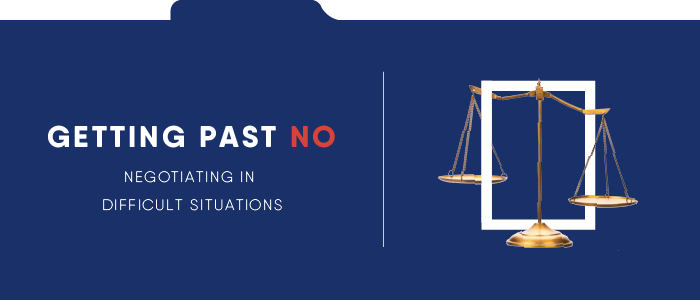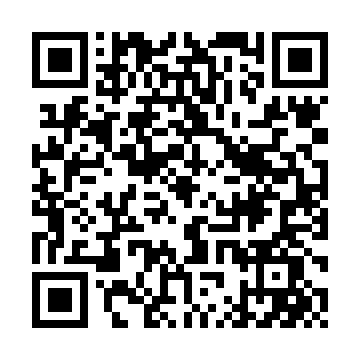
精選書評:Getting Pass No

作者:William L. Ury
出版社:Bantam
• 作者曾協助美國政府建立談判機制,成功避免美蘇核戰發生。
• 商界領袖、軍官和外交官都是作者的談判課程學生。
• 書中包含能搞懂複雜觀念的關鍵字和片語,看完就能現學現賣。
預估閱讀時間:03:10
文章難度: ★★★☆☆
Getting Past No gets right to the point. It contains nothing that isn't totally dedicated to helping you reach your goals, and especially language patterns for reaching your goals. You will not find a purer set of guidelines for bringing negotiation situations to a peaceful, mutually satisfying conclusion. The essence of the book is the endeavor towards "win-win" solutions. In short, this is a book about "the art of letting the other person have your way." 《Getting Past No》
是一本直搗問題核心的書,內容完全沒有廢話,一字一句都致力於協助你達成目標,特別是關於有助實現目標的語言模式。關於如何讓協商一團和氣,達成雙方都滿意的結果,你不會找到比這本書更清晰的方針。本書的精華在於如何追求「雙贏」,簡而言之,這可以說是關於「如何讓他人理解你」的一本書。
As a foundation, like many other books on management, power, or organization, it places a lot of focus on not reacting angrily to any situation – in other words, do not strike back, give in, or break off the situation! We're all familiar with the difficulty of this. This book helps you develop a perspective that lets you keep your mental balance. It's imperative to focus on your goal instead of your position.
一如其他關於管理、權力、或組織的書,本書也非常強調在任何情況下都要避免憤怒的舉動,換句話說,就是「不反抗、不投降、也別毀了這個局面!」我們都知道這有多難,但這本書能幫助你漸漸擁有透視並平衡心理狀態的能力。專注於達成目標才是當務之急,而非專注於自己的輸贏。
One idea is using "I" statements instead of "you" statements. The book gives the example of dealing with a teenager who came home at 3 a.m. instead of the agreed-upon time. "You only think about yourself!" becomes "I feel let down by this." "You broke your word!" becomes "I worried myself sick that something terrible had happened to you." Emphasis on the word "I" helps you to not challenge the other person's view, instead offering a different perspective. This helps you break through resistance and get the other person to listen.
書中提供了一種想法:多用「我」做為主軸來說話,而非「你」。例如面對孩子答應早點回家,卻三更半夜才到家時,你可以用「這樣讓我很失望」取代「你只想到你自己!」;或是說「我很擔心你會不會出事」而非「你沒有信守承諾!」。當我們把說話的重點放在「我」上時,就能單純提供自己的看法,而非挑戰別人的觀點。這樣一來,就能避免對方的抵抗,並且開始聽你說話。
Another thing Getting Past No spends time working with is that we frequently get caught up in our "side" of the argument, and lose sight of our goals. One way to refresh ourselves and maintain this vision is to have a natural excuse to take a break -- "That's a good question. I'm going to get the answer," for example, or even just leaving for a cup of coffee. While we're outside, we can take the time to recognize and name the tactics being used, or focus on what our weaknesses are that might make us lose our cool.
《Getting Past No》這本書也花了很多篇幅,解釋我們在為何爭論時困在自己的立場裡,而忘了真正溝通目的。如何在爭執中冷靜並看清狀況,有一個方式就是找一些自然不過的藉口休息一下,例如:「你問得很好,我現在就去找找答案」、或甚至只是去喝杯咖啡。當我們出門在外時,可以花一點時間辨認現在所用的是什麼策略,或是專注面對那些讓自己無法冷靜的弱點。
Getting Past No is uniquely well-suited to students of the English language because it has a lot of phrases and key language that can be applied directly to getting what you want. For example, when it emphasizes paraphrasing and asking for correction, it shows key phrases for the reader. At just 208 pages, this book is a fast read that is set up in common and easy-to-understand English.
《Getting Past No》非常適合學習英語的人,因為其中有許多可以現學現賣的片語以及關鍵詞,例如當它強調釋義和請求糾正時,它會提供讀者其中的關鍵語句。這是一本僅僅208頁、易讀易懂的實用工具書。

文/ Max Power
本文收錄於英語島English Island 2019年1月號
訂閱雜誌
| 加入Line好友 |  |

 擔心生理健康,心理卻出問題?
擔心生理健康,心理卻出問題?